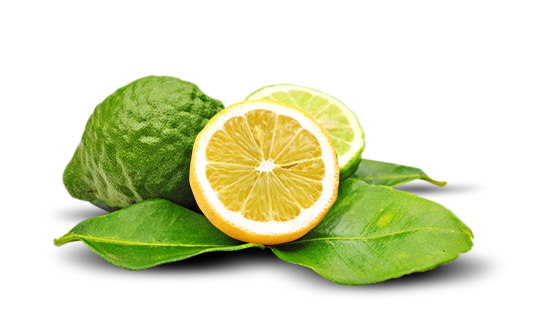Bergamot Review
Bergamot is a type of plant grown in southern Italy. The bergamot plant produces a citrus fruit, and oil extracted from the rind of that citrus fruit has traditionally been used to make medicine.
In ancient times, bergamot was applied directly to the skin to treat psoriasis and other skin conditions. Today, it’s being used as more than just a topical treatment: it’s used as a flavoring compound and as a cholesterol lowering medication.
What makes this unique fruit so powerful? Does bergamot oil actually lower cholesterol and provide other health benefits? I’m going to answer all your questions today in our bergamot review.

Bergamot Uses and Benefits
Today, bergamot is used in a range of different applications. You can buy it on Amazon in the form of an essential oil, or you can purchase bergamot extract pills. Here are a few of the modern uses for bergamot:
— Various supplement companies sell bergamot tablets. You can buy these tablets online or in health food stores. The tablets are designed to be taken daily to support healthy cholesterol and metabolism.
— Bergamot skin creams are used to refresh and moisturize the skin, often relieving redness, acne, uneven skin tones, and even scars according to some user reviews. Typically, when used topically, users apply bergamot oil directly to the skin or use a bergamot-based skin cream.
— Bergamot teas, including the Double Bergamot Earl Grey Black Tea blend from Stash, can be purchased at grocery stores and health food stores. All Earl Grey tea actually has bergamot inside it: the unique citrus/floral flavor of Earl Grey tea comes from dried bergamot peel or bergamot oil.
— Bergamot nootropics – various nootropic supplements claim that bergamot oil can increase mental alertness when used as aromatherapy, although scientific evidence has not backed up this claim.
— Bergamot aromatherapy has also been suggested to elevate mood, and some people use it to calm themselves down after a stressful day.
— Bergamot can be served as a food and is often used as in a jam or marmalade.
Bergamot oil itself is fruity and sweet with a warm, spicy, floral aroma.
How Does Bergamot Work?
Bergamot is thought to work because it contains high levels of natural polyphenolic antioxidants. These compounds are called “free radical scavengers”. Free radicals are dangerous negatively charged compounds which travel through the bloodstream, attaching themselves to organs and cells.
They cause inflammation and disease and have even been linked to increased appearance of wrinkles and cognitive degeneration.
Scientific Evidence for Bergamot
To date, this is limited scientific evidence to support the health benefits of bergamot. The compound has been studied extensively over the years. When you search for “bergamot” on PubMed.gov, you’ll see a total of 172 studies which have involved bergamot. A disproportionate number of those studies have been performed from 2012 onward.
Unfortunately, there’s limited evidence showing that bergamot can reliably reduce cholesterol levels or encourage healthy blood glucose levels.
It has, however, exhibited other beneficial health effects. In one 2014 study published in Clinical Nutrition, bergamot juice (BJe) was shown to reduce inflammation in mice. Researchers concluded by stating, “The results of this study suggested that administration of BJe induced, partly specified, anti-inflammatory mechanisms, which potentially may be beneficial for the treatment of IBD [Inflammatory Bowel Disease] in humans.”
Another study published in Complementary Therapies in Clinical Practice in 2014 didn’t examine the specific mechanisms of bergamot, but instead examined which herbs were used most frequently for aromatherapy among cancer patients. Patients used aromasticks to cure nausea and encourage relaxation. Lavender, lemon, frankincense, bergamot, orange sweet, and peppermint were the aromasticks used most frequently.
In 2013, the International Journal of Cardiology published a study examining the effects of natural bergamot-derived polyphenols (BPF) on reducing LDL cholesterol levels. The study concluded with the following: “Addition of BPF to rosuvastatin significantly enhanced rosuvastatin-induced effect on serum lipemic profile compared to rosuvastatin alone. This lipid-lowering effect was associated with significant reductions of biomarkers used for detecting oxidative vascular damage, suggesting a multi-action enhanced potential for BPF in patients on statin therapy.”
For those who aren’t biology experts, that last study suggested that the polyphenols extracted from bergamot could potentially be used to reduce cholesterol and improve health in other ways – like detecting oxidative stress on your veins.
Conclusion: Should You Use Bergamot?
Bergamot has been well-tolerated in every major study performed to date. WebMD.com says that
“Bergamot oil is likely safe for most people in the small amounts found in food.”
It did, however, warn that children should not take large amounts of bergamot oil by mouth.
WebMD.com also warns people against applying bergamot oil directly to the skin “because it can make the skin sensitive to the sun and more vulnerable to skin cancer.”
Aside from these warnings, bergamot and bergamot oil appear to be safe, healthy, natural compounds which can be used to safely supplement a diet and encourage healthy blood cholesterol levels.








